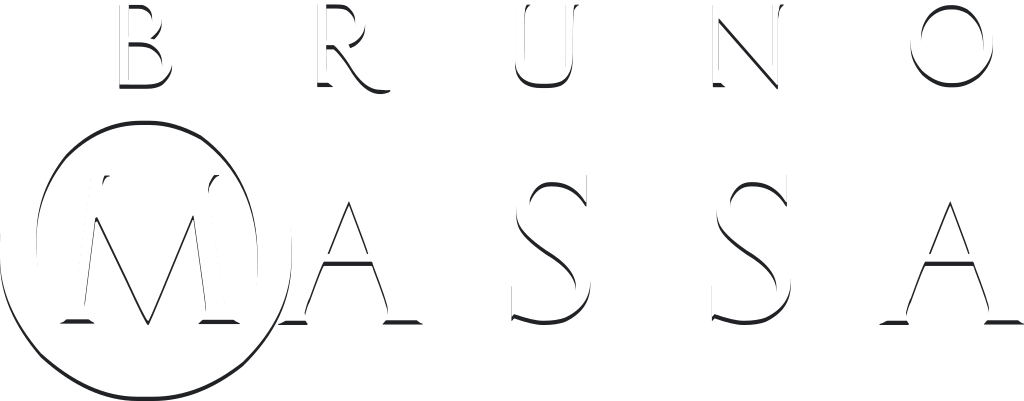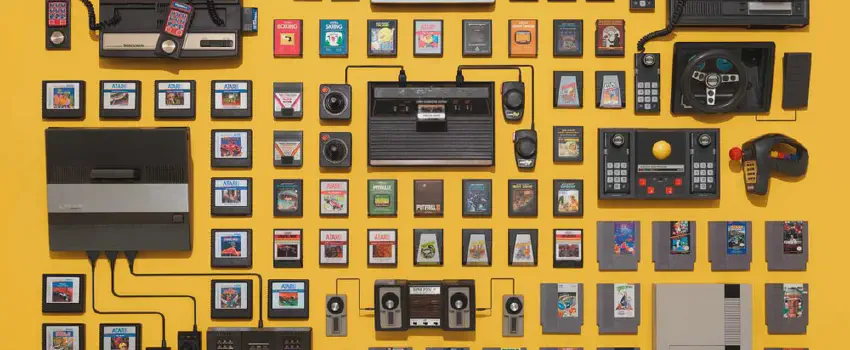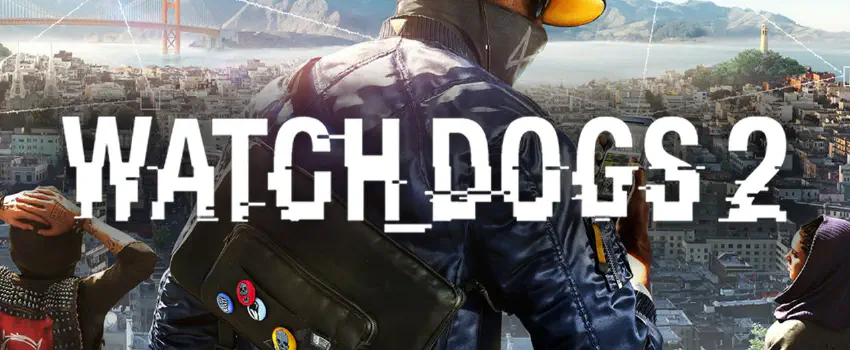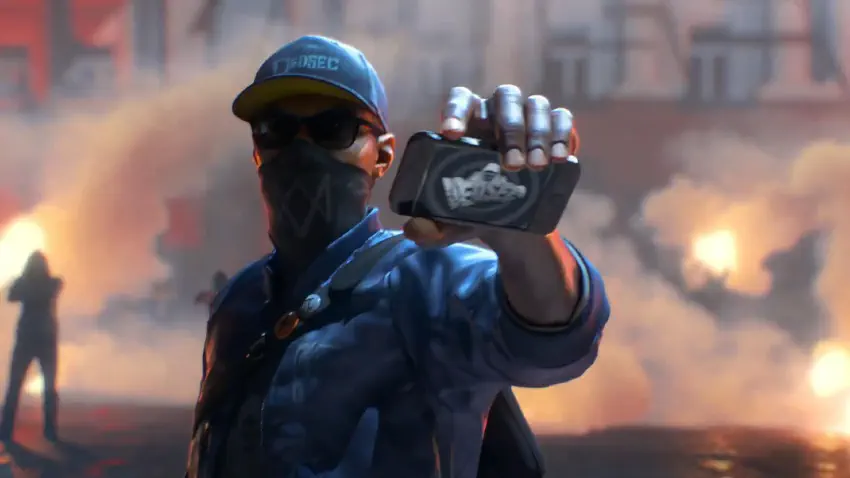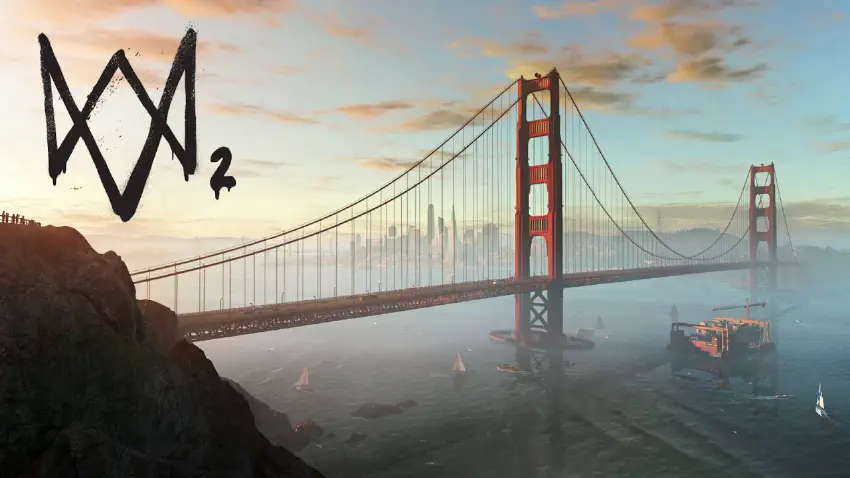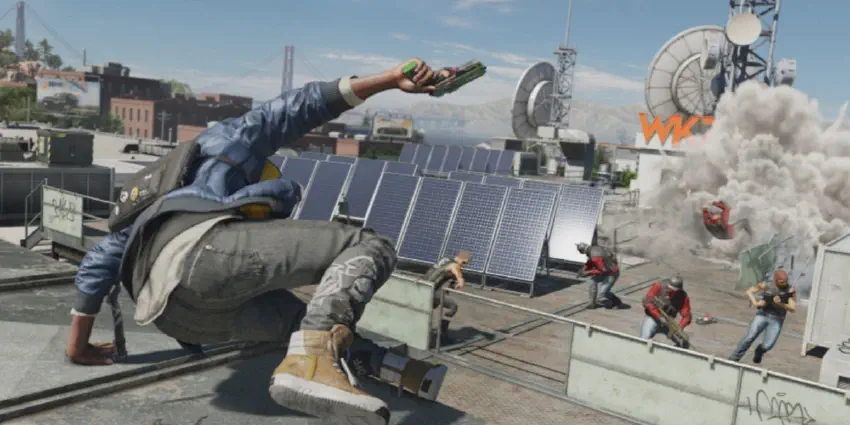Game List 2021
Last year I published a post of my played games, but the title was mistakenly named Media List 2020. It was a games list so this year it was properly named. This year I wrote much less about each individual game, so I dedicated a small space to comment on each entry.
By far, the most important game I played was Cyberpunk 2077. At least, it was supposed to be the most loved and commented game. Whatever, here is a list of games of all games I played this year.
2021-01-13: Totally forgot to include both Battlefield 4 and Battlefield 1.
Finished
- Battlefield 1 (): the best in the series. The split stories, all good, allowed me to explore multiple gameplays.
- Gunpoint (): quick, easy, and charming puzzle-platformer.
- Imperialism II: The Age of Exploration (): finally played to the end the other day. The clunky old graphics and controls get a bit in the way.
- Tell Me Why (): my wife played this game with me. She loved the theme, but she really sucks with the camera controls. We talked about the themes and storylines for weeks. I decided to be by her side to help her play the amazing Life is Strange because she was liking the game but associated it with mental gymnastics to just make the character walk.
- Watch Dogs 2 (): after playing a couple of Ubisoft open-world games lately (1 Far Cry, and 2 Assassin’s Creed in just the last 2 years), I was expecting the same generic main protagonist and blend story. But I genuinely liked this entry. Marcus is a likable dude and despite the exaggerated characterization of hackers, it had several storylines right.
- 3 out of 10 Season 1 (): the self-mocking humor is funny, but the gameplay is monotonous.
- Control (): it was on my wish list for quite some time, then Epic gave it for free. However, I must admit it was a bit off for me. The weird story never fulfilled me, and the levels and flow were a bit repetitive. My impression is that Jesse, the protagonist, was at the same time omniscient and suffering from amnesia. Dr. Casper Darling (played by Matthew Porretta) was a fun character though.
- Cyberpunk 2077 () I enjoyed quite a lot. Finished every single quest. Still, expectations were higher.
- Little Nightmares () (as watcher): I’ve made my wife play this, a bit every night. Despite the lack of gamer’s finger coordination, she did fine and loved it. We will definitively play the second installment eventually.
- Offworld Trading Company ()(campaign mode): the campaign mode lacks openness and does not add a great story to compensate.
- Quadrilateral Cowboy (): this very quirky game about hacking and programming. Very experimental, both for visual and gameplay.
- Abzû (): Underwater abstract exploration. Due to the short length, it was ok.
- Battlefield 4 (): awful. The invincible hero trope to the last moment. Cinematic after cinematic.
- Tharsis (): a survival digital board game. We have to manage action points, mitigate bad dice rolls and survive for about 5 turns. Short and agonizing.
- Hyper Light Drifter (): loved by many. Not me. Hard and confusing, despite beautiful. I gave up.agonizing.
Not finished yet (for one reason or another)
Many projects barely begun. Installed to test, but mostly in limbo—WIP or collecting dust. Unfinished tales of exploration and hesitation.
- A Plague Tale: Innocence (): beautiful production. Played just the first couple of levels.
- Assassin’s Creed 3: It’s a big cut scene with some on-rails gameplay. Hated so far. :(
- Astrologaster (): indie small game. Crazy humor. I liked it very much so far.
- Black Mesa (): the official/non-official Half-Life 1 remake. The original one I did not play at the time. This remake is superb!
- Gris (): beautiful first level.
- Overcooked 2 (): my family loved it, and I’m trying to play the campaign with my wife
- Sherlock Holmes: Crimes and Punishments: the best game in the series. 4 cases with somewhat similar mechanics and styles. Just one to go.
- Supraland (): from nowhere, this game is surprisingly hard and much longer than I anticipated. Still, I’m loving the sarcastic tone and the bucketload of jokes.
- 3 out of 10 Season 2 (): the same as the first season. Funny and awkward. About to finish.
- Blair Witch (): did not care much about the lore, but it’s a nice horror game.
- Crying Suns (): very similar to FTL, with a delightful story and context. My current run is in Chapter 4 and about to finally finish.
- Doki Doki Literature Club: not my style, but I heard so many good things about it that I’m intrigued.
- Ghostrunner (): 3D puzzle game action game. Think about 3D Super Meat Boy.
- Heaven’s Vault (): highly anticipated game, played a bit and liked the story so far. As far I can tell, there is space for multiple run-throughs to explore all possible branches (not sure if I would do it).
- Just Cause 4 (): repetitive like its predecessor. But it was crashing too many times. Hardly coming back.
- Observation (): excellent storytelling, despite the clunky controls.
- Unravel Two (): still to finish with my wife. She struggles to use the joystick, but this game is quite forgiving, due to the slow pace. The light story allows infrequent plays.
- Snake Pass (): 3D puzzle game, installed to play with my nephews, but its controllers, and especially the camera, are too clunky and annoying.
- Wilmot s Warehouse: it works. It’s all that I can tell so far.
- XII: installed, played 2 levels. Unique style but old controls.
- The Stillness of the Wind: installed.
Not finished yet (still from previous years)
Yet, there are some games that I did not quit definitively, but they are still to be played (therefore, not yet rated). A few are installed even still.
- Shadow Tactics: Blades of the Shogun (): I really liked the thinking of this game. It’s definitively one that I will try to complete sooner than later.
- The Quiet Sleep (): in this weird indie game, you play the internal mind of a troubled guy during 3 scenarios.
- This War of Mine (): I’m far in my third play-through, but I’m still to see the game credits.
- Baba Is You (): played some levels. To the second or third “world”, if I remember. SUPER clever.
- Bad North (): nice but I still have to give it more time to shine.
- Detention (): I was far in this indie horror game. I think I formatted the HD and lost the saved game.
- Else Heart Break: it’s working. It’s all that I know
- GRID 2 (): played A LOT. Top-tier racing games. Beautiful, despite the age.
- Hand of Fate 2: I liked the first game, despite the flaws. This second installment is more complete at every level. I shall play it. I’ve read the developer closed doors.
- Kentucky Route Zero: this acclaimed game I was super excited to try.
- Subnautica (): it took me time to understand the whole open concept. But a saved save was lost, and I’m not in the mood to retry it.
- Superhot Mind Control Delete (): played several levels already, yet to finish.
- The Pillars of the Earth: loved the book. I barely started the game, so maybe it should not be here.
- The Witness (): quite adorable. Some puzzles are difficult and make you feel smart. Yet, the lack of pressure makes it an eternal secondary game. It’s also difficult to put it in a “continuous play” category because you need to know at what point are you.
- Everspace (): FTL in 3D. You command a ship that has to fight, explore and trade point to point, in a similar fashion to the famous indie game. I liked it but did not love it. Probably I am not continuing to play.
- SOMA (): I haven’t given it time to blossom, but I was not utterly involved either.
- Sunless Sea (). The procedurally generated world is amazing, but this was not my cup of tea. Probably I am not continuing to play.
- FAR: Lone Sails (): I liked the concept, but I felt lacking.
Continuous playing
I play them eventually. Most of them are strategy games.
- Scythe (): the award-winning board game that I still have to give a beginning-to-end match.
- Ticket to Ride (): played online with family and friends. Always a success.
- Wingspan (): immediate success with my family and friends. Special mention to my 6-year-old nephew’s comment: “It’s the best game I ever played”. He was assisted and played quite well.
- A Total War Saga: TROY (): One of the Epic Store exclusives (for a time), it impressed me. I’m about to finish my first campaign, playing the Amazons.
- Cities: Skylines (): After my friend mentioned that he was lost hours and hours designing his hometown, I reinstalled it and started to lose hours and hours too.
- Democracy 3 (): always in Vogue.
- RimWorld (): MUCH more complex than Prison Architect, offered a great variety of procedural content. I did not finish a single play-through, but it’s really special.
- Rome: Total War (): I played a lot last year. But it’s quite a long game. Once I finish it once, I might close it once and for all. The Troy is heavier but ultimately better in every aspect.
- Hidden Folks (): success with small kids and non-gamers alike
- Stellaris (): slow-paced super broad space strategy. The sense of exploration is still amazing
- Surviving Mars (): a loved board game that I played a couple of matches solo. I was not hooked, but I may still give it another try.
Next games on my radar
Finally, here is a list of games that I already have in my collection that I plan to play in the next months.
- Hitman: I’ve never finished Contracts, but just because I was obsessed with being perfect. I hope to play more relaxed this one.
- Assassin’s Creed Syndicate: hope to be better than the 3.
- Deus Ex: Mankind Divided (): liked the first title, Deus Ex: Human Revolution (). I hope to like this one too.
- We Are There Together: I bought to play with my wife using the family feature on Steam (she shares all my games). However, it is not included in the Play Together, so I am required to buy it twice. 😐 Trying to convince another soul to play with me.
- Heavy Rain: I will play this critically acclaimed story-driven game from Quantic Dream with my wife.
- Beyond: Two Souls (): another story to play accompanied.

